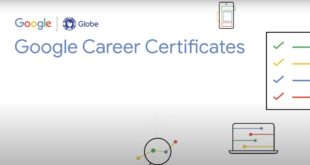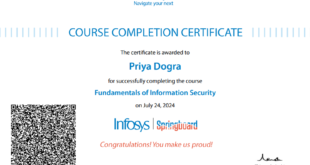SEMrush Site Audit is a tool provided by SEMrush, a popular online visibility management and content marketing SaaS platform. The Site Audit tool helps website owners and digital marketers analyze the health and performance of their websites from an SEO (Search Engine Optimization) perspective. Here’s how it generally works:
- Website Crawling: SEMrush’s Site Audit tool crawls through your website, analyzing its structure, content, and various technical aspects.
- Identifying Issues: It identifies a range of issues that might affect your website’s performance in search engine rankings. These could include broken links, missing meta tags, slow loading pages, duplicate content, and more.
- Prioritizing Fixes: After analyzing your site, SEMrush Site Audit prioritizes the issues it finds based on their severity and potential impact on SEO.
- Actionable Recommendations: It provides actionable recommendations and suggestions on how to fix the identified issues. This could involve technical fixes, content improvements, or structural changes to the website.
- Monitoring Progress: SEMrush also allows you to monitor the progress of your fixes over time, giving you insights into how your site’s SEO health is improving.
Overall, SEMrush Site Audit is a valuable tool for anyone looking to improve their website’s search engine visibility and overall performance. It helps users identify and address SEO issues efficiently, ultimately leading to better rankings and increased organic traffic.
OFFICIAL LINK FOR Semrush Site Audit EXAM: CLICK HERE
Semrush Site Audit Certification Exam Answers
Question 1: Which Site Audit report contains the list of unresolved errors?
- Issues
- Statistics
- Crawled Pages
Question 2: Where do you go to see technical improvement change logs?
- It’s in the main dashboard
- You need to go to Google analytics
- The Progress tab
Question 3: Why is it necessary to make scheduled recrawls of your website on a regular basis?
- To make sure you spend your monthly quota
- To get timely information on website health status changes and to define the reasons for traffic decline, if needed.
Question 4: Which of the following is NOT a correct canonical tag implementation?
- Use canonical= in robots.txt
- Use rel=”canonical” link tag
- Use rel=”canonical” HTTP header
Question 5: With SEMrush Site Audit, it is possible to crawl a site behind a password protected login.
- True
- False
Question 6: When working out a technical strategy how should you categorise issues?
- A list – all issues are just as important
- By volume – there are 1000s of issues on one aspect and only 10s on others – tackle the big one first
- By Importance and Urgency
Question 7: Which is the best way to get rid of a 404 error if a web page moved to another URL?
- Specify the proper link on the page and use a redirection
- Use a redirection
- Change the URL
Question 8: Should you use nofollow when internally linking and looking to pass page rank?
- Yes
- No
Question 9: How do you quickly check if all the issues related to redirect loops and 404 errors are fixed?
- Launch a re-crawl and check out the appropriate issues
- Check every link manually
Question 10: What pages should be present in the sitemaps?
- Ones that are canonical to other pages
- Ones that are to be indexed by Google bots
- 404 pages
Question 11: What should you fix first while working on technical SEO?
- Critical and urgent issues only
- Critical issues
- All the issues
Question 12: Where should your sitemap be referenced?
- In the page footer
- In the robots.txt file
- On any URL
Question 13: Why would you want to slow down your crawl when setting up a site audit?
- The slower the crawler, the more information it retrieves
- To stop the crawler being blocked and keep your developers happy
- To save money on SEMrush credits
Question 14: What is a canonical tag?
- A tag that tells Google the main keyword you want to rank for
- A hard rule that Google must follow, no matter what
- A directive that tells Google the preferred version of the page
Question 15: What is the purpose of an optimized meta description?
- To rank for a specific keyword
- To create an enticing CTA to enhance CTR
- A space to put information that only Googlebot will see
Question 16: Site Audit flags your web pages as duplicate content due to their URL parameters, which appear when one applies a filter. What should you do in this case?
- Hide this issue
- Check if these parameters are present in the Google Search Console
Question 17: What is the rough rule of thumb for the ratio of internal links to your core pages?
- 80% of links point to 20% of pages
- 100% of links point to my main commercial converting pages
- All pages get equal links
Question 18: If a page is “Orphaned” what does it mean?
- The page exists but it is not linked to from anywhere on the site
- It’s a brand new page that hasn’t been crawled yet
- It’s on the site but not in the sitemap
Question 19: Which check is NOT related to a security issue?
- A page responds with a 5хх code
- Mixed content
- Using a <input type=“password”> field
- Subdomains don’t support secure encryption algorithms
Question 20: What is the purpose of an optimized title tag?
- To help Google understand the topic of your document
- It doesn’t have any direct SEO impact
- A space to stuff keywords you want to rank for
Question 21: What issues are the most critical to fix first?
- Alt attributes
- Broken Links and 404s
- Missing meta descriptions
Question 22: Where to find a list of your website’s new pages?
- Progress, then choose “Crawled Pages”
- Crawled pages + filter “New pages = yes”
- Issues
Question 23: Which step of the Site Audit’s setup wizard allows you to override crawler restrictions in robots.txt?
- Crawler settings
- Remove URL parameters
- Bypass website restrictions
Question 24: We want to fix hygiene SEO issues because…
- They affect the way Google Analytics works
- They affect the way Google accesses and understands our site
- They are the cheapest things to fix
Question 25: What is the purpose of a Canonical tag?
- To pass Page Rank
- To redirect users to a proper web page
- To let Google understand which page should be indexed
Question 26: How do we get rich snippets on our SERP?
- By building links with anchor text
- By setting them up in search console
- By using schema and structured data
Question 27: What is the threshold page crawl depth value that needs to be improved?
- Page crawl depth = 0
- Page crawl depth ≥ 3
- Page crawl depth > 1
Question 28: Which Site Audit issue will be triggered if there is inconsistency between canonical and hreflang tags that confuses the search engine and can really mess up your rankings?
- Hreflang Conflicts
- Mismatch Issue
- No Lang Attributes
- Incorrect Hreflang Links
Question 29: Why do you need to compress JS and CSS?
- Uncompressed files do not load on modern browsers
- To improve site speed and user experience
- Google will not crawl uncompressed files
Question 30: What is the name for a stripped-down version of a web page, which was designed for the mobile web?
- Google Page Speed Insights
- Google Lighthouse
- AMP
- Critical Rendering Path
Question 31: Site Audit allows you to schedule a monthly PDF report with up-to-date data.
- True
- False
 Priya Dogra – Certification | Jobs | Internships
Priya Dogra – Certification | Jobs | Internships



